As more and more of our economy is driven by digital rather than physical goods, by bits rather than atoms, traditional methods used to measure the economy are not seeing the whole picture. At the same time, techniques for assessing consumer surplus, a key economic concept for value and economic well-being, have improved greatly, reflecting the emergence of massive digital platforms, the explosion of fine-grained digital data, and the increased power of machine learning for prediction and estimation.
At the New Measures of the Economy Workshop, leading academics and subject matter experts join us to explore new tools and techniques to measure modern economies, including the contribution of household production, people’s health, and the environment.
Questions? Please contact David Nguyen or Susan Young.
Agenda
Bios for panelists below
9:15a PT
Arrivals, breakfast
10:00a PT
Welcome
David Nguyen, Stanford Digital Economy Lab
Erik Brynjolfsson
Director, Stanford Digital Economy Lab
10:30a PT
Opening keynote
Paul Schreyer
Chief Statistician and Director of Statistics and Data Directorate, OECD
11:15a PT
Session 1: Household Production
Households produce and consume considerable output that is largely overlooked by economic accounts such as GDP. This is because household activities usually do not involve monetary, market-based transactions. Yet, people make trade-offs between paid and unpaid work all the time (“Should I cook or order dinner?” “Can we afford a nanny?” “Is it worth it getting a cleaner for my 1-bedroom apartment?”). The BEA estimates that in 2020, household production created a value of around $5.3 trillion, or 20% of U.S. GDP. Similarly, the UK’s Office for National Statistics estimates that unpaid household work in 2016 was around 63% of UK GDP and that this kind of work has grown roughly twice as fast as GDP over the previous decade. This panel explores the current state of measuring household production, gaps in conceptual frameworks, methods, and data.
Speakers
Benjamin Bridgman, US Bureau of Economic Analysis
Diane Coyle, Bennett Institute for Public Policy
John Lourenze Poquiz, King’s College London
Xiupeng Wang, Northeastern University; Digital Fellow, Stanford Digital Economy Lab
David Nguyen, Stanford Digital Economy Lab (Moderator)
12:15p PT
Lunch
1:30p PT
Session 2: Health
Better health outcomes are desirable. Consider a new health intervention that can prevent certain diseases or reduce their negative effects on people. If such interventions are cheaper than conventional treatment, national accounts would record a decrease in economic activity while people are actually better off. This raises the question of how to properly account for improved welfare from lower mortality or morbidity, also referred to as quality-adjusted life years (QALYs), particularly when there is a time lag between costs and benefit. Similarly, the value of a statistical life (VSL) can be derived using stated preference methods such as people’s willingness to pay for better health outcomes. This panel aims to explore the quality of available measures and data and whether they work in different contexts. We will also discuss new data and techniques that could be leveraged to gain new insights.
Speakers
David Cutler, Harvard University
Abe Dunn, US Bureau of Economic Analysis
Erica Groshen, Cornell University
Pete Klenow, Stanford University
Angela Aristidou, Stanford University (Moderator)
2:30p PT
Break
3:00p PT
Session 3: Environment
Environmental protection has massive economic and social benefits. Yet, despite considerable progress in estimating the societal benefit of natural and environmental capital (incl. the SEEA), measurement challenges remain. We lack data on people’s willingness to pay for cleaner air and water, preservation of ecosystems and biodiversity, and limiting the rise of global temperatures. The White House’s “National Strategy to Publish Statistics for Environmental-Economic Decisions” (2023) has the stated goal to “quantify the immense value this natural capital provides,” highlighting that current national statistics do not reflect the clear link between the quantity and quality of natural capital and the economy. This panel will explore the limitations of existing measures;what can be done to improve them; and some of the challenges or barriers to getting better measures, including the global dimension of many environmental issues, people’s hypothetical bias, political preferences, or trust in the effectiveness of proposed policies. Is it feasible or even desirable to “produce a single headline summary statistic” within 15 years as the White House strategy calls for?
Speakers
Matthew Agarwala, Bennett Institute for Public Policy
Matthew Ashenfarb, Yale University, US Department of the Treasury
Vipin Arora, US Bureau of Economic Analysis
Avi Collis, Carnegie Mellon University (Moderator)
4:00p PT
Fireside: Tech Sector Contributions to Welfare
Existing economic measures like GDP are insufficient in capturing the full scope of economic activity, particularly in light of technological advancements like AI. With an increasing reliance on digital rather than physical goods, traditional metrics struggle to account for the value generated, especially in sectors driven by rapid technological changes. As the economy shifts towards intangible goods and services, including those with zero price tags, determining their true impact on people’s welfare becomes crucial. Highlighted by the stagnant share of ICT in GDP, there’s a pressing need to explore alternative yardsticks for assessing the influence of digital platforms and innovations on societal well-being.
Speakers
Karin Kimbrough, LinkedIn
Nela Richardson, ADP
Hal Varian, Google
Saadia Zahidi, World Economic Forum
Erik Brynjolfsson, Director, Stanford Digital Economy Lab (Moderator)
5:00p PT
Reception
6:00p PT
Adjourn
Featured
panelists

Bennett Institute for Public Policy, University of Cambridge
Dr. Matthew Agarwala is an economist interested in wealth-based approaches to measuring and delivering sustainability, well-being, and productivity. His research is motivated by the belief that 21st-century progress cannot be described by 20th-century statistics. Matthew leads the Bennett Institute’s Wealth Economy project, which seeks to transform economic measurement to better reflect sustainability, inequality, and human well-being.
Matthew regularly consults for governments and scientific organizations on topics of natural capital, ecosystem services, green finance, well-being, and sustainability. He enjoys working across sectors and disciplines, and his co-authors include ecologists, economists, conservation scientists and practitioners, social anthropologists, civil servants, members of UK Parliament, and Nobel Laureates in peace, medicine, physics, and chemistry. Beyond Cambridge, Matthew maintains active research networks in Canada, Hong Kong, Germany, USA, Japan, and throughout the UK. He is a regular media contributor (Bloomberg, NYTimes, FT, Guardian, Times, Channel 4 News).
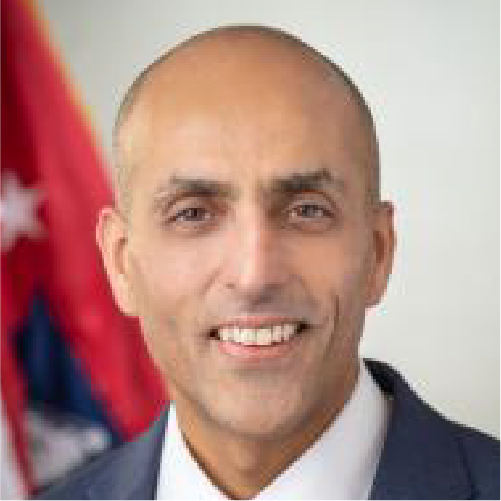
US Department of Commerce
Dr. Arora oversees the production of closely watched economic statistics that provide an objective and timely picture of the US economy. These include gross domestic product (GDP), personal income, and other national statistics, as well as data about states, counties, and industries, and US international trade and investment.
He works with BEA’s executive team to expand the agency’s statistical programs and collaborates with BEA’s researchers to bolster the impact and effectiveness of research that furthers the agency’s mission. He is working with leadership to position BEA as an employer of choice for years to come.
Before joining BEA, Dr. Arora served as acting deputy assistant director of the Social, Behavioral, and Economic Sciences Directorate of the National Science Foundation (NSF). He also served as deputy director of NSF’s National Center for Science and Engineering Statistics, one of the federal government’s 13 principal statistical agencies.
At NSF, Dr. Arora oversaw data analysis, information dissemination, operations, human capital management, and multiple special projects. He led the creation of new partnerships between the National Center for Science and Engineering Statistics and other federal agencies to better understand topics of importance in science and engineering.
Before that, he led economic analysis at the US Energy Information and Administration. Dr. Arora also served as an intelligence officer in the US Army, as an analyst at the US Government Accountability Office, and in the private sector in multiple organizations.
Dr. Arora holds a PhD in economics from the Australian National University, a master’s degree in public administration from Syracuse University, and a bachelor’s degree in chemical engineering from the University of Illinois.

Yale University and US Department of the Treasury
Matthew is an Environmental Economics PhD Student at Yale University, currently on leave at the US Treasury Office of Economic Policy.

Stanford Digital Economy Lab, Stanford HAI
Professor Angela Aristidou speaks, writes, and consults about the implementation of digital and artificial intelligence tools in the healthcare ecosystem. Angela is a DEL Fellow (Faculty Affiliate) at the Stanford Digital Economy Lab, in the Human-centred AI Centre, and specializes in strategy and entrepreneurship at University College London’s School of Management. She is an international award-winning academic (among other: Fulbright; Stanford University’s CASBS), she is a single grant-holder for a UK Research Innovation Future Leader Fellowship (approx. £1.7 UK million pounds; 2020-2028) and she currently leads a team of researchers examining digital care innovations in the UK, USA, China, and Canada with plans to expand her studies to more countries.
Angela’s ongoing research program (“Innovating Across Sectors”) examines how different sectors (public, private, third) come together around digital health technologies such as artificial intelligence. Her research adopts an ecosystem approach, including the viewpoints of (and real-world data from) hospitals, healthcare professionals and managers, professional medical associations, technology and pharma companies, patient- and patient advocacy networks, nonprofit and community associations, and healthcare-related unions. She focuses on how these multiple stakeholders manage or regulate the deployment of the new digital technologies in (national) healthcare systems and health services.
Angela studies what she refers to as “AI in the wild”—how AI tools are used in the hands of frontline workers in real-world settings. Her research team includes experts in management, economics, sociology, psychology, data science, and medical sub-specialties, and leverages a range of qualitative and quantitative methods.

US Department of Commerce, Bureau of Economic Analysis
Benjamin Bridgman is assistant chief economist at the Bureau of Economic Analysis.
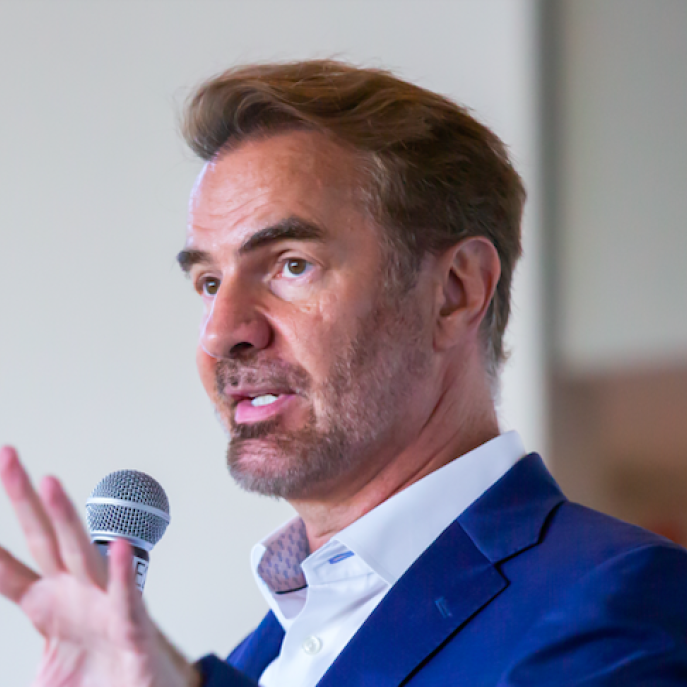
Stanford Digital Economy Lab, Stanford HAI
Dr. Erik Brynjolfsson is the Jerry Yang and Akiko Yamazaki Professor and Senior Fellow at the Stanford Institute for Human-Centered AI (HAI), and director of the Stanford Digital Economy Lab. He is the Ralph Landau Senior Fellow at the Stanford Institute for Economic Policy Research (SIEPR) and holds appointments at the Stanford Graduate School of Business, Stanford Department of Economics and a Research Associate at the National Bureau of Economic Research (NBER).
One of the most-cited authors on the economics of information, Brynjolfsson was among the first researchers to measure productivity contributions of IT and the complementary role of organizational capital and other intangibles. He has done pioneering research on digital commerce, the Long Tail, bundling and pricing models, intangible assets, and the effects of IT on business strategy, productivity, and performance.
Brynjolfsson speaks globally and is the author of nine books, including, with co-author Andrew McAfee, best-seller The Second Machine Age: Work, Progress and Prosperity in a Time of Brilliant Technologies, and Machine, Platform, Crowd: Harnessing Our Digital Future as well as over 100 academic articles and five patents. He holds bachelor’s and master’s degrees from Harvard University in applied mathematics and decision sciences and a PhD from MIT in managerial economics.

Carnegie Mellon University
Avi Collis is an assistant professor at the Heinz College of Information Systems and Public Policy at Carnegie Mellon University. He holds a PhD from the Sloan School of Management at the Massachusetts Institute of Technology.
He performs research on the Economics of Digitization and teaches courses related to Technology Strategy and Experimentation. His research has been covered in major media outlets and policy reports worldwide, including the New York Times, Wall Street Journal, Washington Post, the Economist, CNN, BBC, Financial Times, Bloomberg, and NPR, and reports by the US White House, Federal Reserve, Senate, and UK treasury.
Avi has also been invited to present my research at the OECD, European Commission, IMF, and the Bureau of Economic Analysis. He is also part of the Federal Economic Statistics Advisory Committee (FESAC), which advises the Directors of the Department of Commerce’s statistical agencies, the Bureau of Economic Analysis and the US Census Bureau, and the Commissioner of the Department of Labor’s Bureau of Labor Statistics.
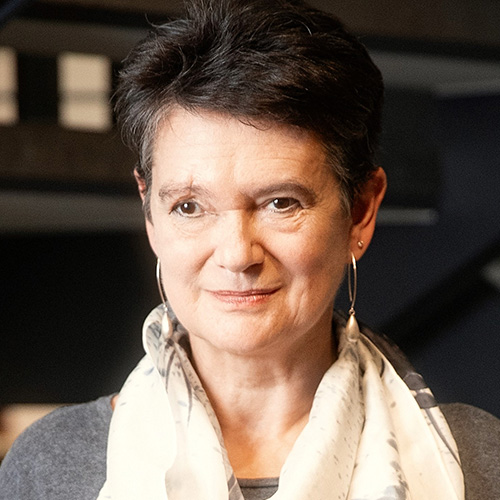
Bennett Institute for Public Policy, University of Cambridge
Professor Dame Diane Coyle is the Bennett Professor of Public Policy at the University of Cambridge. Diane co-directs the Bennett Institute where she heads research under the themes of progress and productivity. Her latest book is ‘Cogs and Monsters: What Economics Is, and What It Should Be‘ on how economics needs to change to keep pace with the twenty-first century and the digital economy. Diane is also a Director of the Productivity Institute, a Fellow of the Office for National Statistics, an expert adviser to the National Infrastructure Commission, and Senior Independent Member of the ESRC Council. She has served in public service roles including as Vice Chair of the BBC Trust, member of the Competition Commission, of the Migration Advisory Committee and of the Natural Capital Committee. Diane was Professor of Economics at the University of Manchester until March 2018 and was awarded a DBE in the King’s Birthday Honours List 2023 for her invaluable contributions to economic policy and practice, as well as her unwavering commitment to public service.

Harvard University
David Cutler has developed an impressive record of achievement in both academia and the public sector. He served as Assistant Professor of Economics from 1991 to 1995, was named John L. Loeb Associate Professor of Social Sciences in 1995, and received tenure in 1997. He is currently the Otto Eckstein Professor of Applied Economics in the Department of Economics and was named Harvard College Professor in 2014 until 2019. Professor Cutler holds secondary appointments at the Kennedy School of Government and the School of Public Health. Professor Cutler was associate dean of the Faculty of Arts and Sciences for Social Sciences from 2003 to 2008.
Honored for his scholarly work and singled out for outstanding mentorship of graduate students, Professor Cutler’s work in health economics and public economics has earned him significant academic and public acclaim. Professor Cutler served on the Council of Economic Advisers and the National Economic Council during the Clinton Administration and has advised the Presidential campaigns of Bill Bradley, John Kerry, and Barack Obama, as well as being Senior Health Care Advisor for the Obama Presidential Campaign. Among other affiliations, Professor Cutler has held positions with the National Institutes of Health and the National Academy of Sciences. Currently, Professor Cutler is a Research Associate at the National Bureau of Economic Research and a member of the National Academy of Medicine. He advises many companies and groups on health care.
Professor Cutler was a key advisor in the formulation of the recent cost control legislation in Massachusetts, and is one of the members of the Health Policy Commission created to help reduce medical spending in that state.Professor Cutler is the author of three books, several chapters in edited books, and many published papers on the topics of health care and other public policy topics. Author of Your Money Or Your Life: Strong Medicine for America’s Health Care System, published by Oxford University Press, this book, and Professor Cutler’s ideas, were the subject of a feature article in the New York Times Magazine, The Quality Cure, by Roger Lowenstein. Cutler recently completed a book, Survival of the City: The Future of Urban Life in an Age of Isolation (with Edward Glaeser), examining how cities must and can adapt to pandemics and other threats.

US Department of Commerce, Bureau of Economic Analysis
Abe is assistant chief economist at the Bureau of Economic Analysis.

Cornell University
Dr. Groshen is Senior Economics Advisor at the Cornell University School of Industrial and Labor Relations and Research Fellow at the Upjohn Institute for Employment Research. From 2013 to 2017, she served as the 14th Commissioner of the US Bureau of Labor Statistics, the principal federal agency responsible for measuring labor market activity, working conditions, and inflation. Before that she was Vice President in the Research and Statistics Group of the Federal Reserve Bank of New York. Her research has centered on jobless recoveries, wage rigidity and dispersion, and the role of employers in the labor market.
She is the lead author of “Preparing U.S. Workers and Employers for an Autonomous Vehicle Future,” with Susan Helper, John Paul MacDuffie and Charles Carson. She also co-authored How New is the “New Employment Contract”? from W.E. Upjohn Institute Press and co-edited Structural Changes in U.S. Labor Markets: Causes and Consequences, from M.E. Sharpe, Inc. Dr. Groshen received the 2017 Susan C. Eaton Outstanding Scholar-Practitioner Award from the Labor and Employment Relations Association. She holds a Ph.D. in economics from Harvard University and a B.S. in mathematics and economics from the University of Wisconsin-Madison.

LinkedIn Economic Graph
Karin leads a team of economists and data scientists that delivers research and insights from the LinkedIn Economic Graph. She previously worked as assistant treasurer at Google and as managing director and head of macroeconomic policy at Bank of America. She also served as vice president in the Markets Group of the Federal Reserve Bank of New York during the financial crisis.
Karin holds a doctorate in economics from Oxford University, a master’s in public policy from the Harvard Kennedy School, and an undergraduate degree in economics from Stanford.
In 2017, Black Enterprise recognized Karin as one of the most powerful Black Women in Business. She is a member of Fannie Mae’s board of directors and the Federal Reserve Bank of Chicago’s Academic Advisory Council.
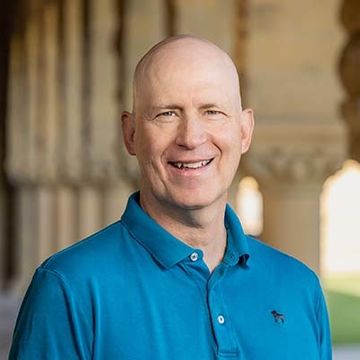
Stanford University
Pete Klenow is Ralph Landau Professor of Economics at Stanford University, the Gordon and Betty Moore Senior Fellow at SIEPR, and the Dong Wei Fellow at the King Center for Economic Development. He is co-director of the Economic Fluctuations and Growth group at the National Bureau of Economic Research (NBER), and is a co-editor of the American Economic Review: Insights. His research focuses on productivity, prices, and economic growth, using microdata to shed light on macro questions.
Pete received his bachelor’s degree in business from the University of California at Berkeley in 1986 and his PD in economics from Stanford in 1991. He is a member of the American Academy of Arts and Sciences and a Fellow of the Econometric Society. He has received multiple awards for his MBA and undergraduate teaching.

Stanford Digital Economy Lab
David’s research explores new and better ways to measure the modern and digital economy. He is particularly interested in advancing economic metrics and statistics on economic output and welfare.
Before joining the Stanford Digital Economy Lab, David worked as an economist at the OECD in Paris, and as a senior economist at the National Institute of Economic and Social Research (NIESR). As a research associate, he remains affiliated with the London-based Economic Statistics Centre of Excellence (ESCoE). David received his PhD from the London School of Economics.

King’s College London
John Lourenze Poquiz is a PhD Student in Economics at King’s Business School. His research interest is in the area of Economic Measurement. His current research involves the estimation of the aggregate dollar-equivalent welfare value derived by households from the consumption of free digital goods (i.e. videoconferencing, personal email, online news).
Prior to joining King’s, he was a senior statistician of the Philippine Statistics Authority’s (PSA) National Accounts team, where he was involved in the development of Satellite Accounts and the compilation of several macroeconomic indicators.
He was a business journalist (reporter) for a broadsheet prior to working with the PSA. He earned his Master of Advanced Economics degree from the University of Adelaide. He also holds a Master’s degree in Economics from the University of Santo Tomas. He is a recipient of the King’s Business School Doctoral Research Studentship. For his master’s, he received full funding from the Australia Awards Scholarship program.

ADP, ADP Research Institute
Dr. Nela Richardson is ADP’s Chief Economist and ESG Officer. Nela is the head of the ADP Research Institute (ADPRI), where she leads economic research and provides reliable and timely analysis for the public, global and local businesses, and policymakers. Her background and expertise cross many industries, including finance, technology, housing and labor.
In response to the accelerated pace of economic change, Nela led the launch of a high-frequency revamp of the renowned ADP® National Employment Report in collaboration with Stanford Digital Economy Lab. Together with her team of researchers, data scientists and financial markets experts, Nela drives the Institute’s mission to generate data-driven discoveries about the world of work through research initiatives, such as Pay Insights, Global Workforce View and Women at Work, among others.
In addition to ongoing labor market analysis, Nela provides insights on the dynamic shifts of the economy. She is a highly sought speaker and has delivered remarks at global thought leadership events, including the World Economic Forum Annual Conference in Davos and the Jackson Hole Economic Symposium. Nela is also a regular contributor to top-tier media outlets, including Marketplace from American Public Media. She frequently appears on CNBC, Bloomberg, Fox Business CNN, Yahoo! Finance, The Wall Street Journal, FORTUNE magazine, The New York Times, among others. Nela’s MainStreet Macro blog offers insights on how economic conditions affect small businesses, workers and households.
Prior to her work at ADP, Nela was Principal and Investment Strategist at Edward Jones, a financial services firm, where she analyzed and interpreted economic trends and financial market conditions and recommended investment strategies. Nela previously served as chief economist at Redfin Corp., a national real estate brokerage and technology company, where she led a team of data scientists, economists and writers to track trends in the housing market. She also worked as a senior economist for Bloomberg, L.P., covering housing and financial markets.
Nela has held research positions at the Commodity Futures Trading Commission (CFTC), Harvard University’s Joint Center for Housing Studies and Freddie Mac. She also worked as an adjunct finance professor at the Carey School of Business at John Hopkins University. She earned a Ph.D. in economics from the University of Maryland, College Park with concentrations in financial economics, international finance and economic development. Nela also attained a master’s degree in economics from the University of Pennsylvania and a bachelor’s degree from Indiana University in Bloomington, where she was a triple major in mathematics, economics and philosophy.
Nela serves on the Stanford Digital Economy Lab Advisory Group, CSIS Council of Geoeconomic Advisors, National Academies, Sciences, Engineering and Medicine Committee on National Statistics and the Committee on Automation and the U.S. Workforce. She also serves on the World Economic Forum Council on the Future of Job Creation. She is a member of the Bureau of Economic Analysis (BEA) Advisory Committee, the Conference of Business Economists, and the foundation board for the National Association of Business Economists.

OECD
Paul Schreyer was nominated director and chief statistician of the OECD Statistics and Data Directorate in November 2020. He joined the OECD in 1988 and held various positions in the (then) Directorates for Science Technology and Industry, Environment and Statistics. His personal research areas include national accounts, the measurement of capital, productivity, welfare, non-market activities, and prices. He is the author of several OECD Manuals and has a record of publications in international journals and books. In 2008-09, he was rapporteur in the Stiglitz-Sen-Fitoussi Commission on the Measurement of Economic Performance and Social Progress.
He is member and alternate chair of the Technical Advisory Group to the International Comparison Program at the World Bank (ICP), member of the Swiss Federal Commission for Statistics, and a founding m,ember of the Society for Economic Measurement. Prior to joining the OECD, Paul Schreyer held positions as a research fellow at the IFO Institute for Economic Research in Munich, Germany (1987-1988) and as assistant professor at the Department for Economic Theory at the University of Innsbruck, Austria (1983-1987).
He was born in Salzburg, Austria and holds a doctorate in economics from the University of Innsbruck, Austria. In 1984/85, he obtained a British Council Foreign and Commonwealth Office Research Scholarship to the University of Birmingham, U.K.
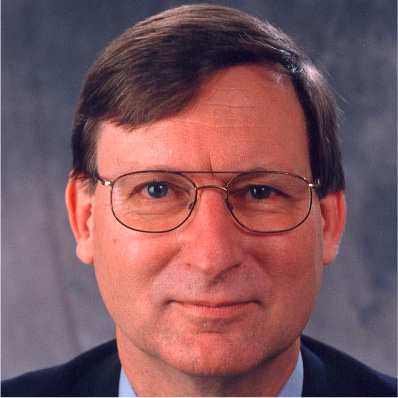
Hal R. Varian is the Chief Economist at Google. He started in May 2002 as a consultant and has been involved in many aspects of the company, including auction design, econometric analysis, finance, corporate strategy, and public policy. He is also an emeritus professor at the University of California, Berkeley in three departments: business, economics, and information management.
He received his SB degree from MIT in 1969 and his MA in mathematics and Ph.D. in economics from UC Berkeley in 1973. He has also taught at MIT, Stanford, Oxford, Michigan, and other universities around the world.
Dr. Varian is a fellow of the Guggenheim Foundation, the Econometric Society, and the American Academy of Arts and Sciences. He was Co-Editor of the American Economic Review from 1987 to 1990 and holds honorary doctorates from the University of Oulu, Finland, and the University of Karlsruhe, Germany.
Professor Varian has published numerous papers in economic theory, industrial organization, financial economics, econometrics, and information economics. He is the author of two major economics textbooks, which have been translated into 22 languages. He is the co-author of a bestselling book on business strategy, Information Rules: A Strategic Guide to the Network Economy, and wrote a monthly column for the New York Times from 2000 to 2007.

Northeastern University
Dr. Xiupeng Wang is a Visiting Assistant Teaching Professor at the D’Amore-McKim School of Business at Northeastern University. Dr. Wang’s research primarily focuses on the impact of emerging technologies, particularly recent advances in information technologies, on firms and the labor market. His current research studies how Information Technology affects organizational structures, firm sizes, and market concentration.
His research also extends to cybersecurity to analyze firms’ human capital acquisition in response to data breaches. Through massive online experiments, Dr. Wang is developing a new measure of household production and finds the currently omitted non-market contribution to the GDP can potentially be greater than we believed before.
He is also excited about using the matched employer-employee data from the U.S. Census Research Data Center. Dr. Wang received his Ph.D. in economics from the University of Connecticut and did postdoc research at MIT, Stanford University, and Boston University. He is a digital fellow at the Stanford Digital Economy Lab and a senior research associate at the Harvard Labor and Worklife Program.

World Economic Forum
Saddia Zahidi is managing director at the World Economic Forum and a member of its managing board. She leads the Forum’s Centre for the New Economy and Society, working with leaders from business, government, and civil society to advance economic opportunity for all and build more prosperous, resilient, and equitable economies. The Centre creates insights and partnerships on competitiveness, growth and economic development, the future of work and job creation, education and reskilling, gender parity and diversity, social mobility, and global risks.
Zahidi also leads the Forum’s global communications and public engagement. She previously led the Forum’s Global Programming Group, responsible for the content, design, and operations of the Forum’s events, including Davos.
Her book, Fifty Million Rising, on the rise of working women in the Muslim world, was longlisted for the FT’s Book of the Year and won the FT/Mckinsey Bracken Bower Prize. She was honoured to be among the BBC’s 100 Women, serve on the UN Secretary General’s panel for Women’s Economic Empowerment, and the European Space Agency’s high-level advisory group.
Zahidi holds a Bachelors in Economics from Smith College, a Masters in International Economics from the Graduate Institute of Geneva, and a Masters in Public Administration from the Harvard Kennedy School.